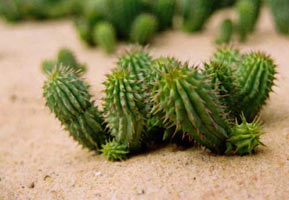Learn worries
Psychopharmacology, the treatment of psychiatric disorders and emotional distress with medication, has developed over the last fifty years, as our understanding of the workings of the brain has increased in sophistication. When medication is prescribed for mental and emotional illness, the most frequent goal is to restore the chemical balance within the brain, thereby restoring equilibrium to the entire system. Certain drugs function to address certain symptoms, such as when sedatives are prescribed for insomnia. Medications can work to slow disease processes, such as when anti-oxidants are used to treat Alzheimer's. Still other drugs control cravings and curb other problematic behaviors, such as taken to control alcoholism. Prescription drugs and those purchased over the counter also can cause anxiety symptoms. Cold medicines, diet pills, antispasmodic medications, stimulants, digitalis, thyroid supplements, and, paradoxically, antidepressants given to reduce panic all may cause anxiety. Discontinuing a variety of drugs, including tranquilizers, sleeping pills, and certain blood-pressure medicines can lead to withdrawal symptoms that often include anxiety. Many organizations today supports research into the causes, diagnosis, prevention, and treatment of anxiety disorders and other mental illnesses. Studies examine the genetic and environmental risks for major anxiety disorders, their course--both alone and when they occur along with other diseases such as depression--and their treatment. The ultimate goal is to be able to cure, and perhaps even to prevent, anxiety disorders. Other research focuses on the hippocampus, another brain structure that is responsible for processing threatening or traumatic stimuli. The hippocampus plays a key role in the brain by helping to encode information into memories. Studies have shown that the hippocampus appears to be smaller in people who have undergone severe stress because of child abuse or military combat. This reduced size could help explain why individuals with PTSD have flashbacks, deficits in explicit memory, and fragmented memory for details of the traumatic event. Major depression, the kind of depression that will most likely benefit from treatment with medications, is more than just "the blues." It is a condition that lasts 2 weeks or more, and interferes with a person's ability to carry on daily tasks and enjoy activities that previously brought pleasure. Depression is associated with abnormal functioning of the brain. An interaction between genetic tendency and life history appears to determine a person's chance of becoming depressed. Episodes of depression may be triggered by stress, difficult life events, side effects of medications, or medication/substance withdrawal, or even viral infections that can affect the brain. Each anxiety disorder has its own distinct features, but they are all bound together by the common theme of excessive, irrational fear and dread. |
Natural herbal diet pills Hoodia that stops the appetite
Hoodia gordonii, "Whoo De AH", is the botanical name for a leafless, spiky succulent plant that grows throughout the semi-arid areas of Southern Africa primarily the Kalahari desert. The San (local inhabitants) have rationally used Hoodia stems to stave off hunger and thirst when on long journeys, as it acts as an appetite suppressant. It basically tricks the brain into thinking that you're full. The chemical constituents in Hoodia work within the satiety center by releasing a chemical compound similar to glucose but much stronger. The hypothalamus in the brain receives this signal as an indication that enough food has been consumed and this in turn stunts the appetite. The hypothalamus receives signal as an indication that enough food has been consumed and this in turn stunts the appetite. This pure organic Hoodia, contains a miracle molecule that, in effect, fools the brain into believing you are full, and even stops you from thinking about food. When you eat hoodia, the saying goes, your hunger will simply be gone -- gone -- for around six hours. During those six hours, you won't crave anything. You really won't want to eat at all. The food still smells good, as usual, and they taste the same if you eat them, but you don't want to eat them! At least that's what the hoodia advocates claim will happen. Hoodia is registered as a protected species to prevent Bio-Piracy but is allowed to be grown on a handful of commercial farms in South Africa owned by private farmers. |
Take back your great sex gladness
Sexual dysfunction is more common in people who abuse alcohol and drugs. It is also more likely in people suffering from diabetes and degenerative neurological disorders. Ongoing psychological problems, difficulty maintaining relationships or chronic disharmony with the current sexual partner can also interfere with sexual function. A recent study estimates that 30 million men suffer from various degrees of erectile dysfunction. This can range from mild to severe. It is clearly an age-related phenomenon with the prevalence of erectile dysfunction increasing significantly with age. Surprisingly, by the time men reach 40, 5% of them are completely impotent never achieving an erection rigid enough for penetration. Approximately 15% have significant problems achieving or maintaining an erection. Little is known about how to prevent erectile dysfunction. However, avoiding cigarette smoking and maintaining normal blood pressure and cholesterol levels can help because smoking and high cholesterol can affect blood vessels. Men with diabetes should strive to keep blood sugar levels under control. Because certain medications have been associated with erectile dysfunction, ask your doctor about possible side effects before you start using any new prescription. There are many effective treatments for erectile dysfunction. The most popular option is a class of drugs called phosphodiesterase type 5 (PDE5) inhibitors, which includes sildenafil (Viagra), vardenafil (Levitra) and tadalafil (Cialis). These drugs, taken in pill form from zero to 60 minutes before sexual activity, work in approximately 70 percent of men, though they are less effective in men with neurological causes of erectile dysfunction such as nerve damage from prostate surgery, diabetes or spinal cord injury. |
|
|
Read our other articles:
Weight loss as help your body be healthy
Patterns of hair loss
Skin aging solutions
Teeth whitening
Be smart in your drugs search
Perimenopause and menopause